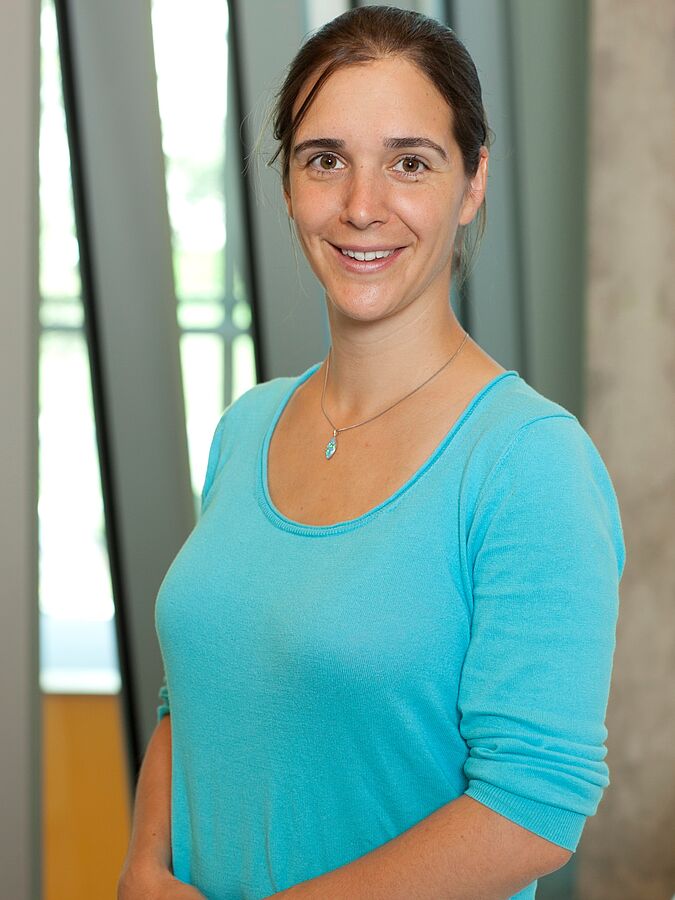A rising star on the research horizon enthused raved the "Princeton Alumni Weekly" about Dorothea Fiedler. At the American Ivy League University founded in 1746, she enjoyed the reputation of being an outstanding scientist who was particularly important for the future of the university. Sorry Princeton, but this star will be shining over Berlin in future. We cordially welcome Dorothea Fiedler and the members of her group at the FMP.
With the appointment of his new colleague, a long-cherished wish has been fulfilled for Volker Haucke. Besides relief for the new directorate and joint management of the FMP, he is hoping for new impulses through a completely new research field: "Dorothea Fiedler's work involves small sugar-like molecules that appear to play a very important role in the intracellular energy metabolism and about which very little is known at present."
Cosmopolitan from the North of Germany
Dorothea Fiedler grew up in Hamburg. She studied inorganic chemistry at the University of Würzburg and then at the University of California in Berkeley, where she received her doctorate. She worked under the guidance of Prof. Ken Raymond, an expert on inorganic molecules in biological systems. In the laboratory of Prof. Robert Bergmann, the focus was on organometallic chemistry. Finally, Dorothea Fiedler crossed the San Francisco Bay to continue work as a postdoc in the laboratory of the chemical biologist Prof. Kevan M. Shokat at UCSF. Here she investigated cellular signal transduction pathways. Signal propagation in biological networks is highly complex. "Even today I find it incredibly fascinating that signal transduction is executed with such high precision in all of the cells of our body," she says. When errors and defects occur here, severe diseases can be the result. An important goal of her research programme is to elucidate the mechanisms of those signals that lead to the development of tumours and the spread of metastases.
Research topics are diabetes and obesity
Since August 2010, Dorothea Fiedler has been working at Princeton University, where she has been focusing on the regulatory function of phosphate-containing compounds that play an important role in the growth of cancer. One area of interest is a group of signaling molecules in the cell termed inositol pyrophosphates. They play an important role in the development of lipid metabolism disorders, severe obesity and type 2 diabetes. Already in Princeton, Dorothea Fiedler and her team developed new methods to break down the cascades of the chemical reactions and interactions of inositol pyrophosphates into individual steps. That Dorothea Fiedler's scientific work has attracted great attention is shown not least by her academic distinctions. In 2013, she received one of the 15 grants from the renowned Sidney Kimmel Foundation for Cancer Research totalling 200,000 US dollars. In the words of the jury, Dorothea Fiedler's work demonstrates excellent innovative capacity and is highly promising. Similarly hand-picked are the seven scholarship holders of the Rita Allen Foundation, which counts several Nobel Prize winners and numerous other highly decorated scientists in its ranks. Dorothea Fiedler received a grant totalling 500,000 dollars from the Rita Allen Foundation. Her largest grant in the USA was the NIH Director’s New Innovator Award, with 1,5 million dollars. It is no longer applicable, due to her move to Germany.
At the FMP, she wants to continue her successful work. "We have spent the past years developing the necessary techniques and tools. Now things will really get moving, and the FMP has absolutely everything we need – super colleagues and the best infrastructure – to take big steps forward," says the freshly appointed FMP director.


